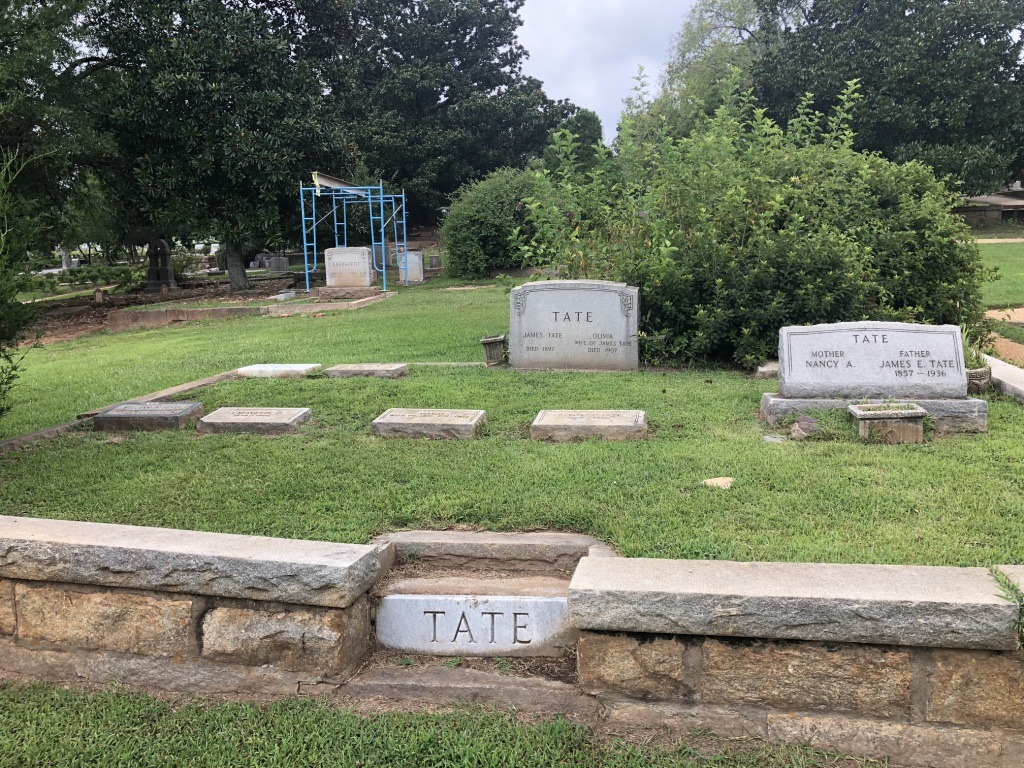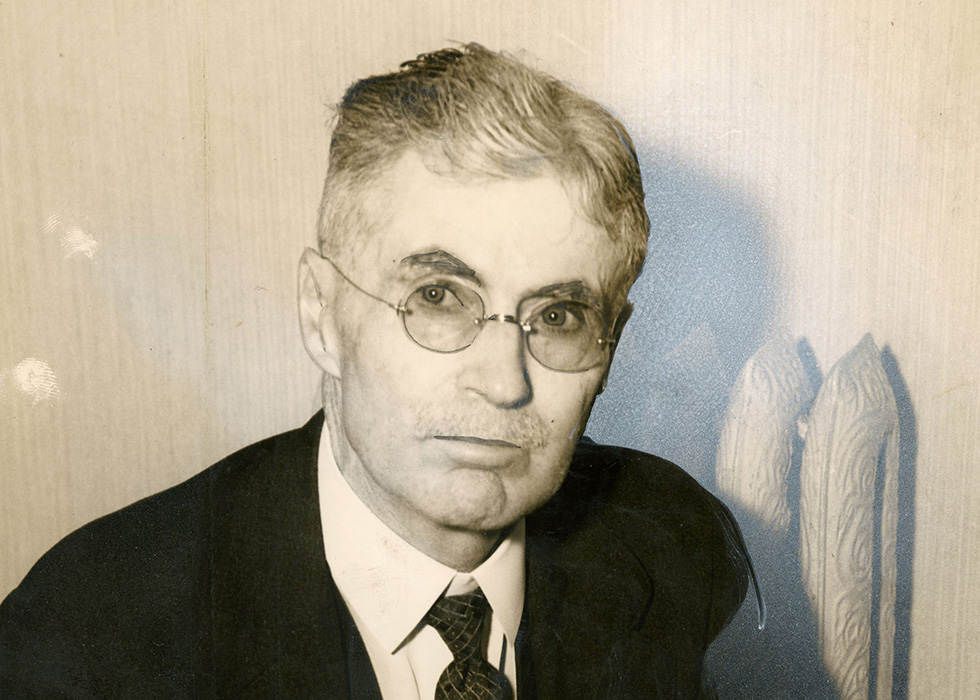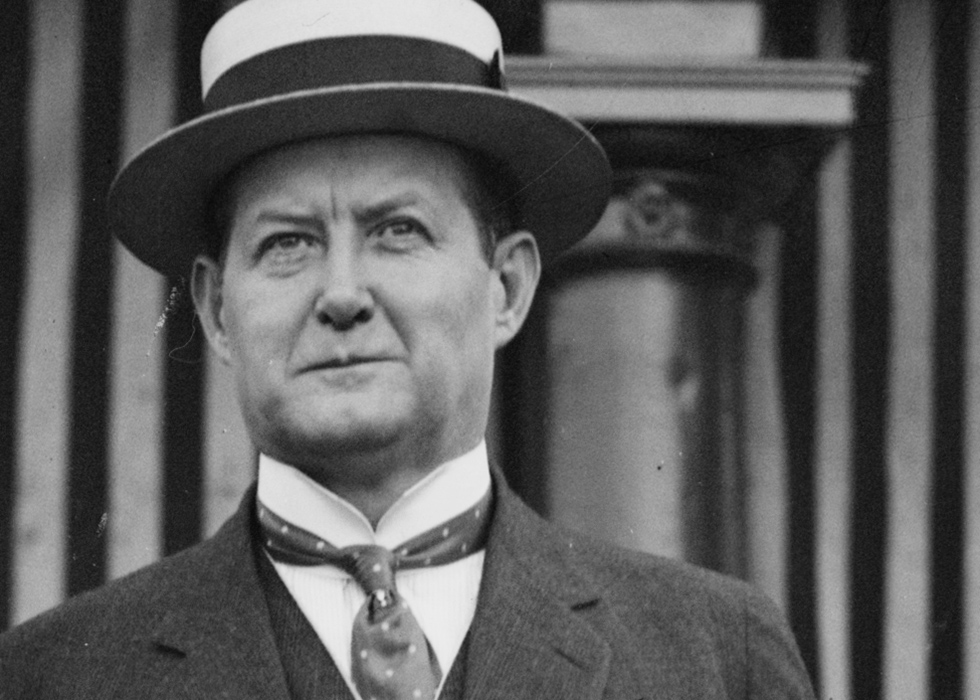
Oakland Remembers World War I: James Edward Tate, Jr.
James Edward Tate, Jr. was born in Georgia on October 6, 1893, the first-born child of James Edward Tate Sr. and Nancy Tate. The Tate family was a prominent African American family in Atlanta. Tate’s grandfather, James Tate, opened the city’s first African American-owned business after the Civil War and was known as the “father of black business in Atlanta.” James Tate Sr. worked in the family grocery business and then became a post office clerk. Nancy Tate took care of Tate Jr. and his seven siblings.
Tate moved from Atlanta to Detroit, Michigan when he was a young man and found employment at the Ford Motor Company, where his younger brother, William, also worked as a vehicle inspector. Tate was one of the thousands of African Americans who left the South in search of economic and social opportunities in a national movement known as the “Great Migration.” The oppression of Jim Crow discrimination left many African American families living in fear of racial violence in the South. Thousands relocated to the cities in the Midwest and the North.

Tate enlisted into the US Army on August 1, 1918. He served in France and was a Private in Company A, 543 Engineer Corps. During World War I, engineers constructed the physical infrastructure needed to conduct a war. Engineer corps constructed bridges, roads, and railroads to transport supplies, evacuate the wounded, and move troops across countries. They also developed chemical defensive equipment and warfare munitions.
Tate was discharged on July 12, 1919, and returned to Michigan, but his military service did not end with the Great War. Tate was once again drafted to serve in World War II as an engineer in the 547th Battalion. Many African Americans during WWII were limited to serve in labor battalions, even if they were qualified to serve elsewhere. Tate and his battalion helped to create various weapons, tanks, and ammunition to be used in combat. James Edward Tate, Jr. died on December 6, 1960, at the age of sixty-seven.
The Tate Legacy in Atlanta
The Tate family was one of early Atlanta’s prominent black families. Born the son of an enslaved mother and white slaveowner in Elbert County, Georgia, James Tate (d. 1897) was raised in slavery but secretly educated. After emancipation, Tate moved to Atlanta and became played an active role in Atlanta politics, society, and business for the next three decades. He helped to found Friendship Baptist Church, created Atlanta’s first elementary school for African American children, and opened the city’s first black-owned business. He branched out from his grocery business into real estate. By 1890, he was worth more than $90,000 (almost 2.5 million dollars in 2018). He and his wife Olivia had five children who would make an impact on Atlanta: James Edward Tate, Mary, Thaddeus, and his twin brother, and Hattie. Tate died in 1897 and was buried at Oakland Cemetery in the African American Grounds.
His son, James Edward Tate Sr. (1857-1936), was a partner in his father’s grocery business before venturing off to become a clerk at the post office. He was also an inspector for the Pilgrim Health and Life Insurance Company. Tate Sr. and his wife Nancy had eight children (including veteran James Edwards Tate Jr.), most of whom all received their education at Atlanta University.
Nannie Tate Simmons was a teacher in Atlanta Public Schools for many years. Ella Tate Redd taught in Atlanta until she retired from teaching; she was the director of Region III of the Georgia State Teachers Association. She was also elected State Teacher of the Year. Thaddeus Tate was a manager and developer of the first private golf course in Washington. Hattie Tate Tibbs and Mary Tate Carter’s families were active in the Atlanta community, some serving as doctors, teachers, businessmen, and grocers. Dr. Ernest Carter Tate (1907-1990) was educated at Atlanta University before going on to receive a Ph.D. in philosophy from New York University. He served as the Chairman of the English Department of Washington High School for many years. Dr. Tate wrote two books in his lifetime and also served as an instructor in the English department at Morris Brown College.



